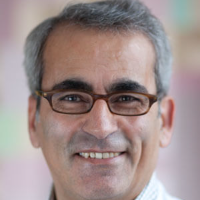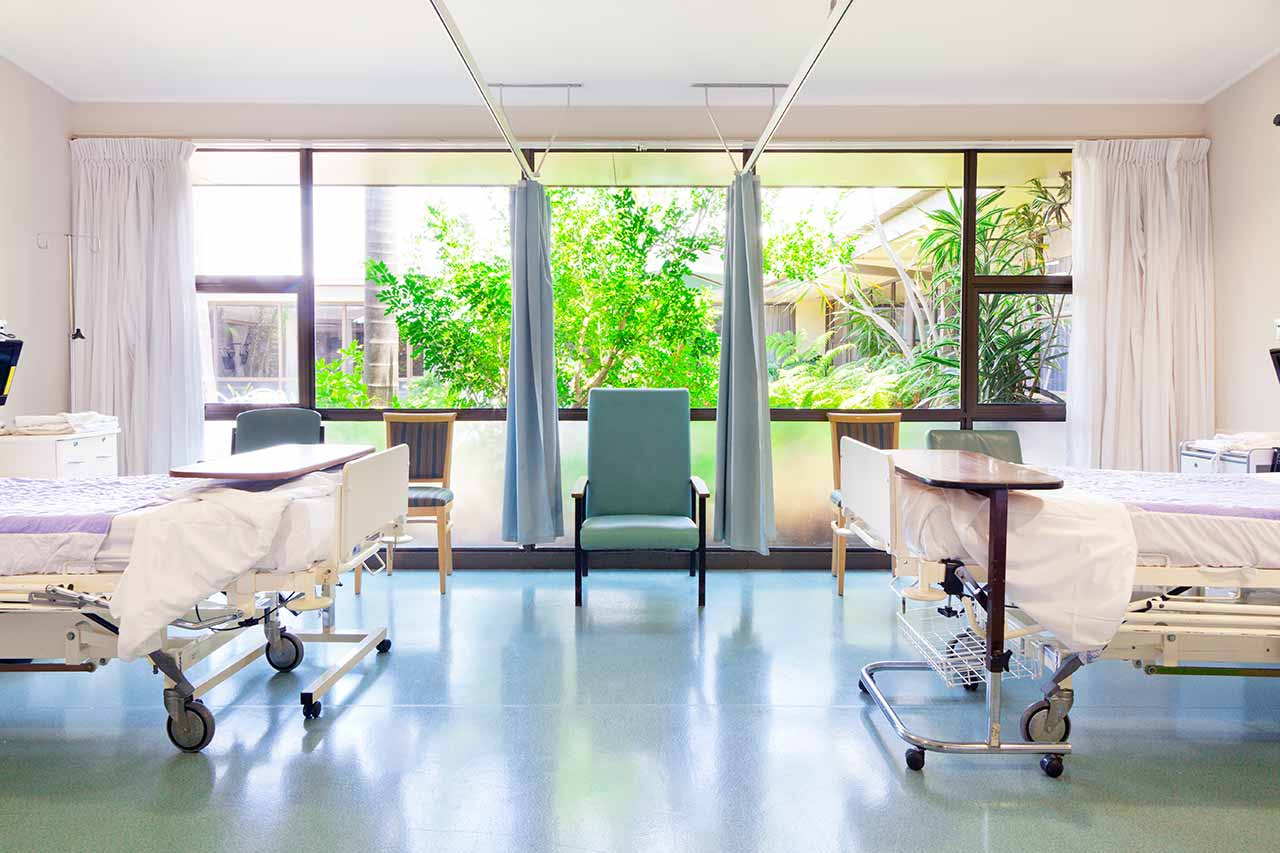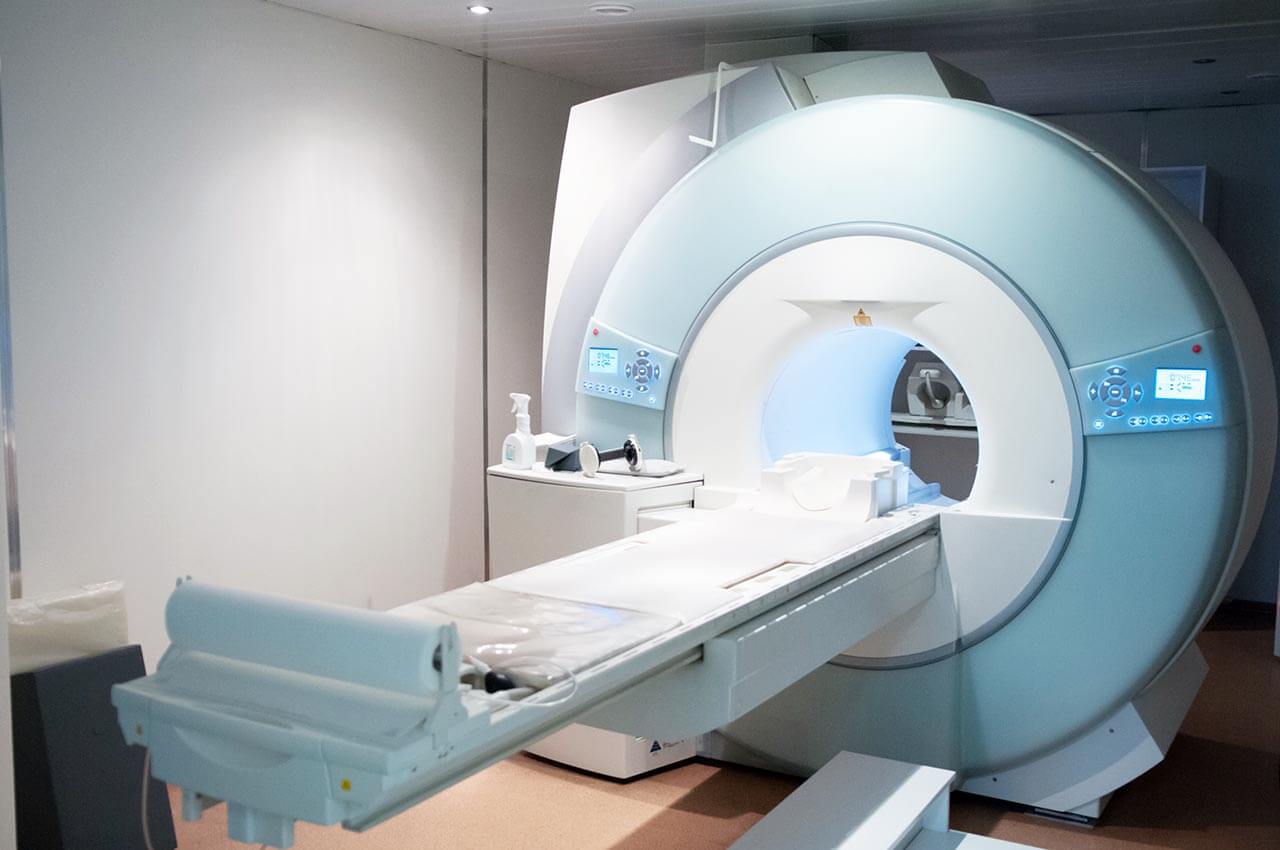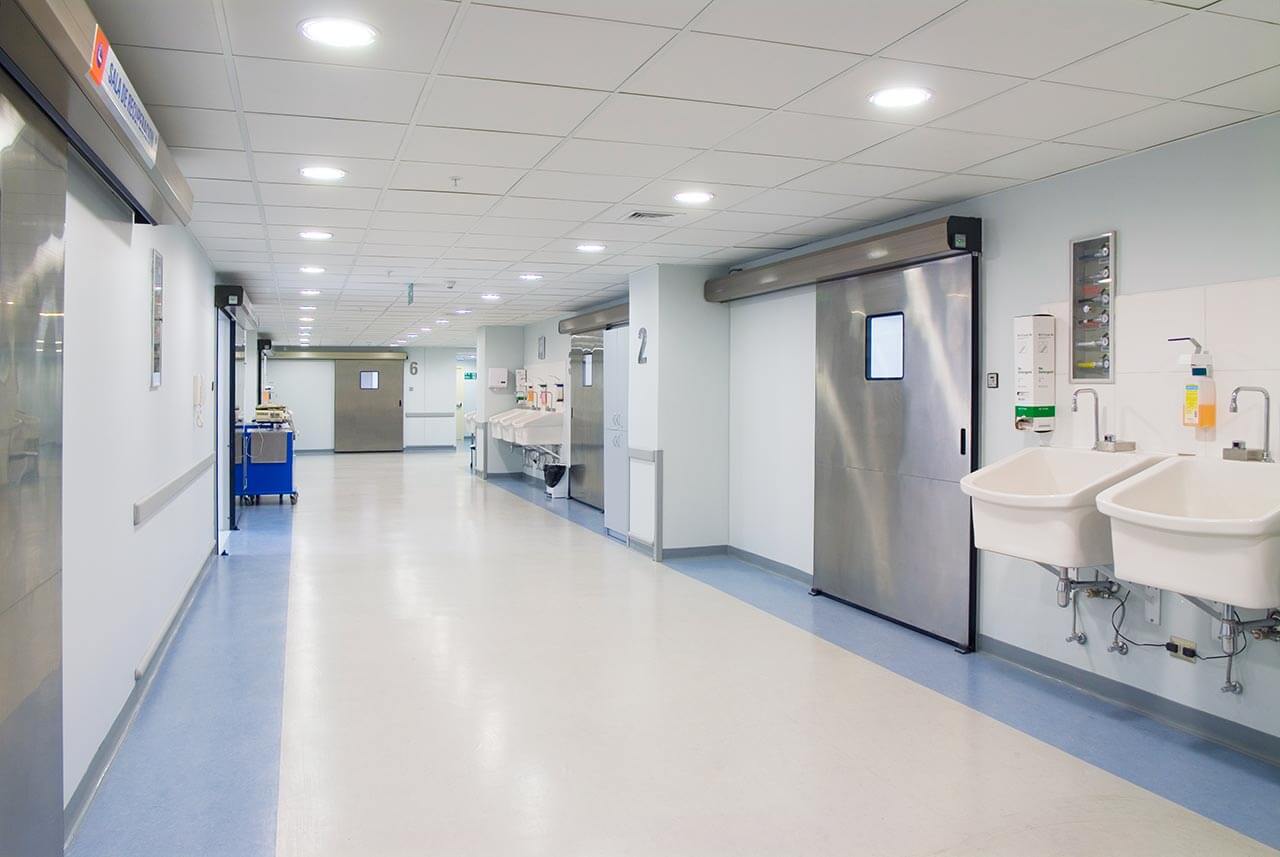
The program includes:
- Initial presentation in the clinic
- clinical history taking
- review of medical records
- physical examination
- laboratory tests:
- complete blood count
- biochemical analysis of blood
- mineral metabolism analysis (Na, K, Ca, Mg)
- lipid metabolism (HDL/LDL, cholesterol,
triglycerides Lip(a), homocysteine) - inflammation indicators (CRP, ESR)
- indicators blood coagulation
- blood gas analysis
- chest x-ray examination
- holter monitoring (24h)
- measurement of arterial blood pressure
- electrocardiogram (ECG)
- pulmonary function test
- echocardiography
- doppler echocardiography
- high-resolution computed tomography (HR-CT)/MRI (on indication 950/1200€)
- CT angiography (on indication 1350€)
- nursing services
- consultation of related specialists
- treatment by chief physician and all leading experts
- explanation of individual treatment plan
(the cost of medicines is not included)
Required documents
- Medical records
- Echocardiography (if available)
Service
You may also book:
 BookingHealth Price from:
BookingHealth Price from:
About the department
The Department of Pediatric Cardiology at the University Hospital Saarland Homburg offers the full range of services for the diagnostics and treatment of cardiovascular diseases in children and adolescents. The department's main focus is the provision of medical care to young patients with congenital heart defects. The medical facility is certified as a supraregional Adult Congenital Heart Disease Center by the German Cardiac Society (DGK), the German Society of Pediatric Cardiology (DGPK), and the German Society for Thoracic and Cardiovascular Surgery (DHTHG). In addition, the department has the status of a Competence Center for Congenital Heart Disease in Children. The department's doctors maintain close cooperation with the Departments of Pediatrics and Neonatology, specialists in adult cardiology, thoracic and cardiovascular surgery, and obstetricians and gynecologists to ensure comprehensive medical care and achieve optimal treatment results. More than 800 patients are treated in the department, and about 135 interventions are performed here annually. The hearts of young patients are in the safe hands of a highly specialized team of cardiologists with impressive clinical experience. The department is headed by Prof. Dr. med. Hashim Abdul-Khaliq.
Like other diseases, cardiac pathologies require comprehensive heart diagnostics with modern methods. The department has the necessary technical resources for 3D echocardiography, transthoracic echocardiography, transesophageal echocardiography, and electrocardiography, including stress electrocardiography, spiroergometry, 24-hour blood pressure monitoring, and electrophysiological studies. Thanks to cooperation with specialized departments, young patients can also undergo myocardial scintigraphy, cardiac computed tomography, and magnetic resonance imaging. With appropriate clinical indications, diagnostic cardiac catheterization procedures can be performed. Together with obstetricians and gynecologists, pediatric cardiologists perform fetal echocardiography, with the help of which the specialists can detect heart disease as early as the 15th week of pregnancy.
The department's specialists are distinguished by excellent qualifications in the field of interventional treatment of congenital heart diseases in children. Since such a diagnosis as heart disease, in most cases, shocks parents and children, negatively affects their emotional state and causes fear and despair, the department's highly qualified psychologist provides patients with the necessary psychological care. Physicians are most often encountered with atrial and interventricular septal defects, patent foramen ovale, and pulmonary valve stenosis.
Interventional procedures for the repair of congenital heart diseases in children are carried out in an advanced Cardiac Catheterization Laboratory equipped with a two-projection X-ray device for the heart and blood vessels. This device is specifically designed for catheter-based examinations and interventional therapeutic procedures in children and adults with congenital heart disease. Catheterization can be performed under sedation or general anesthesia. The optimal type of anesthesia is determined by the patient's attending physician.
The department's range of diagnostic and therapeutic services includes:
- Diagnostics
- 3D echocardiography
- Transthoracic echocardiography
- Transesophageal echocardiography
- Electrocardiography, including stress electrocardiography
- Spiroergometry
- 24-hour blood pressure monitoring
- Electrophysiological studies
- Myocardial scintigraphy
- Cardiac computed tomography
- Cardiac magnetic resonance imaging
- Diagnostic cardiac catheterization
- Fetal echocardiography
- Treatment
- Interventional therapy for congenital heart disease: closure of atrial and interventricular septal defects, patent foramen ovale, and other procedures
- Emergency medical care for congenital heart disease in newborns
- Balloon dilatation and stent implantation for congenital coronary artery stenosis
- Follow-up care for adult patients with congenital heart disease
- Other diagnostic and treatment methods
Curriculum vitae
Higher Education and Professional Career
- 10.1981 - 05.1988 Study of Medicine at the Hannover Medical School, medical exam in Hanover.
- 04.1989 - 04.1990 Assistant Physician in the Department of Pediatric Pulmonology and Immunology at the Hannover Medical School.
- 02.1990 Doctor of Medicine at the Hannover Medical School. Subject: "The quality of primary health care in pediatric rheumatic diseases. Atypical juvenile spondylitis; diagnostic criteria".
- 06.1990 - 08.1993 Assistant Physician in the department of Neonatology of the Children's Hospital Auguste Victoria in Berlin (Prof. Dr. M. Obladen).
- 08.1993 - 09.2000 Assistant Physician of the Department of Pediatric Cardiology and Treatment of Congenital Heart Diseases in the German Heart Center in Berlin (Prof. Dr. P.E. Lange).
- 11.1996 Medical Specialist in Pediatrics, Berlin Medical Association.
- 03.1997 Board certification in Pediatric Cardiology, Berlin Medical Association.
- 07.1998 - 08.1998 Stay at the Institut de Puériculture de Paris to deepen knowledge in the field of embryonic echocardiography (Dr. Laurent Fermont, Paris).
- 09.2000 Senior Physician, Department of Pediatric Cardiology and the Treatment of Congenital Heart Diseases, German Heart Center in Berlin, Leading Position in the field of invasive and non-invasive diagnostics and therapy, as well as in postoperative intensive care.
- 10.2002 Habilitation and Venia Legendi in Pediatrics, Humboldt University of Berlin. Subject: "Research on the development of neuroprotective strategies in the surgical treatment of congenital heart diseases".
- 04.2004 Head of the Querschnittprojekt (echocardiography in the network of Centers for Congenital Heart Diseases).
- 09.2005 Professor (W2) of Pediatric Cardiology, University Hospital Saarland.
- 04.2006 Board certification in Pediatric Intensive Care, Berlin Medical Association.
- 04.2006 Head of the Research Project "Resynchronization therapy in children with heart failure and adults with congenital heart diseases" within the network of Centers for Congenital Heart Diseases.
- 08.2006 Head of the Department of Pediatric Cardiology at the University Hospital Saarland Homburg.
Memberships in Professional Societies
- Member of the German Society of Pediatric Cardiology.
- Member of the German Society of Cardiology.
- Member of the Association of European Pediatric Cardiologists (AEPC).
- Member of the Working Group on Heart and Lung Transplantation in Childhood.
- Member of the American Society of Echocardiography.
- Member of the Society for Pediatric Intensive Care (PCICS).
- Member of the Working Group "Adults with Congenital Heart Defects" (10/2008 elected as the 2nd Chairman).
- Board Member of the network of Centers for Congenital Heart Diseases.
- Member of the scientific and medical advisory council Marfan-Hilfe (Germany).
- Member of the German-Arab Medical Society.
Photo of the doctor: (c) Universitätsklinikum des Saarlandes
About hospital
The University Hospital Saarland Homburg is the largest hospital in the city of Homburg and the most important medical facility in the region. The hospital, which currently has 30 specialized departments and 20 institutes, was founded in 1947 and operates on the basis of Saarland University. The hospital plays a leading role in medical education, research, and medical care both in the state of Saarland and throughout Germany. With vast experience in serving foreign patients, the medical facility is also widely known in the international medical arena.
The pride of the hospital is state-of-the-art equipment that allows the doctors to perform high-precision comprehensive diagnostics and the most sparing treatment even if a patient has a severe pathology. Patients are offered innovative medicine based on the very latest scientific achievements. At the same time, the hospital offers many therapeutic methods that are used only in leading medical centers in Europe, including da Vinci robot-assisted surgery, CAR T-cell therapy, TAVI and MitraClip catheter-based procedures, innovative laser procedures, etc. Great importance is paid to ethical and social competence. The hospital is constantly improving the work of its medical personnel and infrastructure to provide medical services that meet the highest standards.
As a multidisciplinary medical complex, the hospital offers highly effective treatment of the full range of common diseases as well as rare and severe pathologies. The efforts of the medical staff, which includes over 600 doctors and 2,000 nurses, are focused on the patient and their unique needs and desires. The doctors always devote enough time to personal communication with their patients, provide them with moral support, and are sympathetic to every life situation.
Photo: (с) depositphotos
Accommodation in hospital
Patients rooms
The patients of the University Hospital Saarland Homburg live in comfortable single, double, and triple patient rooms with a modern design. Each room is equipped with an ensuite bathroom with a shower and a toilet, as well as everything else necessary: a comfortable bed, a bedside table, a TV, and a telephone. In addition, enhanced-comfort rooms and specially equipped rooms for people with disabilities are available for the patients.
Meals and Menus
The hospital offers healthy and delicious meals three times a day: buffet breakfast, dinner with a wide choice of dishes for every taste, and a light supper. The menu features dietary and vegetarian dishes. There is also a cafeteria on the territory where one can taste delicious dishes and have a cup of coffee, tea, or some refreshing drinks
Further details
The standard patient rooms include:
Religion
The hospital regularly hosts catholic and evangelical devine services. The services of representatives of other religions are available upon request.
Accompanying person
During an inpatient program, an accompanying person can stay with you in the patient room or in a hotel of your choice.
Hotel
During an outpatient program, you can stay in a hotel of your choice. The managers will help you choose the most suitable options.





